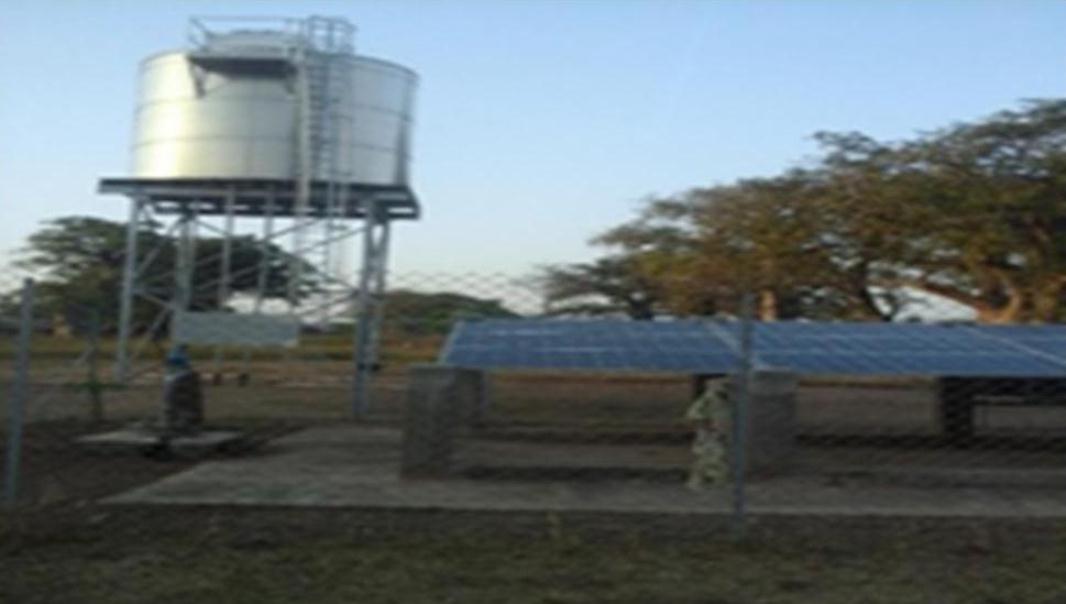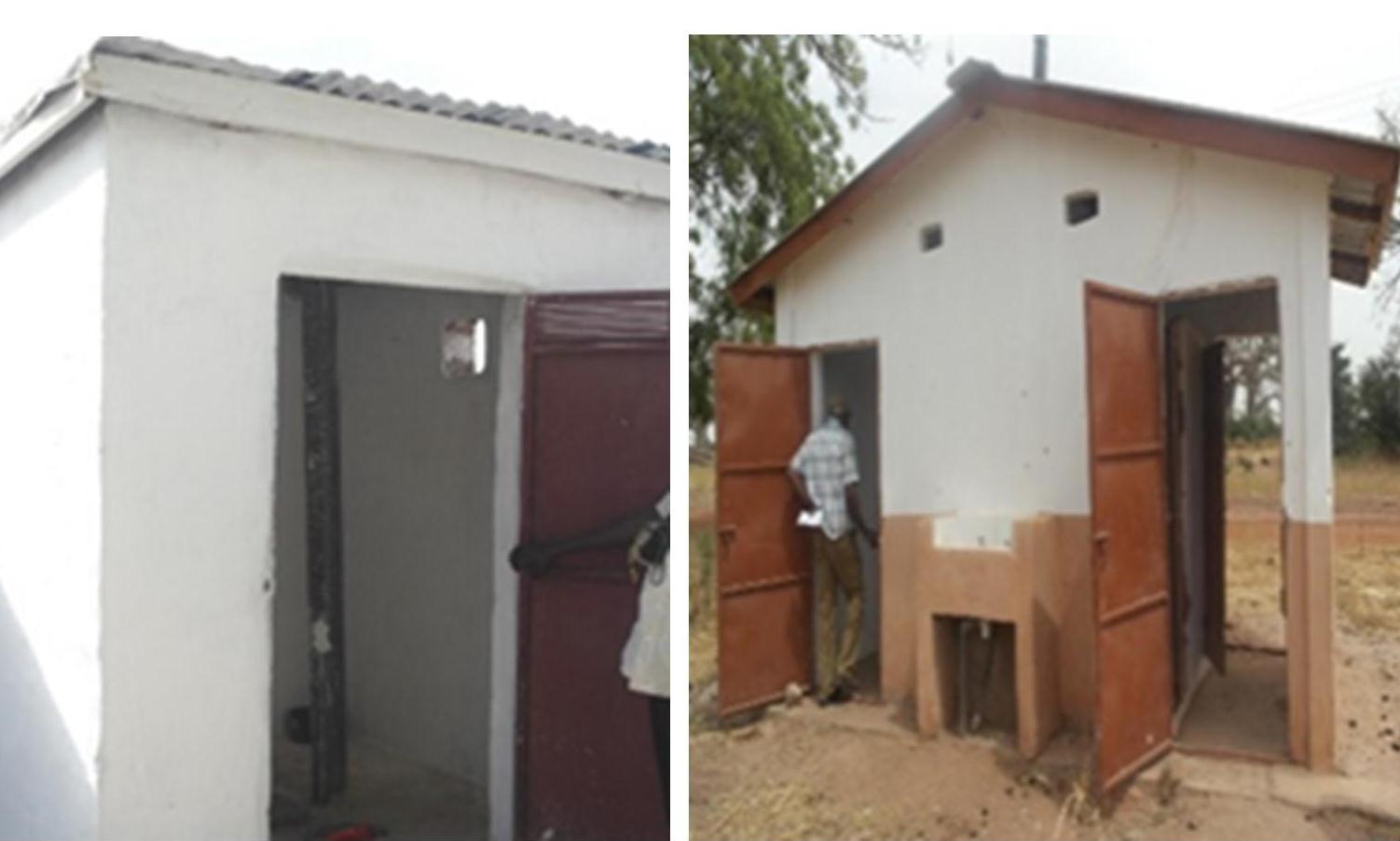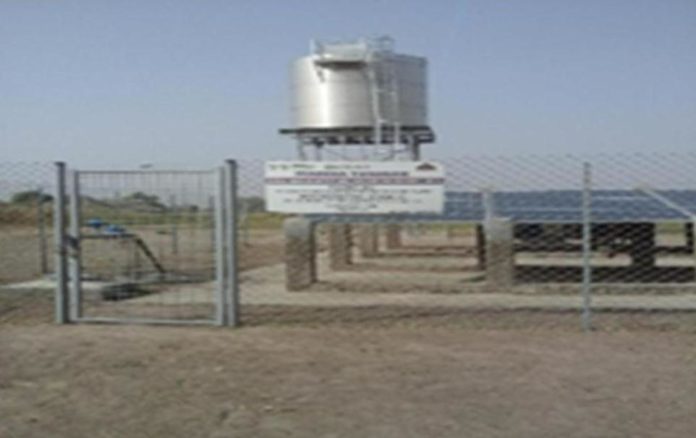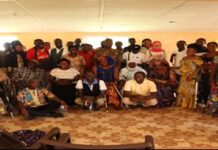BY OMAR NGUM
MARCH 2018
The RWSSP, jointly funded by the African Development Bank and Government of the Gambia is currently winding up, as it nears completion after five years of operation in forty four villages in the five rural regions of the Gambia.
At the time of inception in 2012, the development objective of the project was to Increase access to safe drinking water, improved sanitation and hygiene practices in the rural areas of The Gambia. Access to safe drinking water will increase from the level of about 70% to 72% i.e. 65000 peopleand for sanitation from 40% to 44 i.e. 20000 people (at time of appraisal 2011) by project completion in Dec. 2017.
More specifically, the project was designed to establish eighteen new multi-villages solar water facilities with public stand-taps, rehabilitate and upgrade four water supply facilities to solar powered units, construct fiftyPublic Sanitation facilities in schools, rural health centers, markets and one thousand house hold latrines. Whilst some of the water supply systems will serve single villages, others are meant to meet the domestic water requirements of a cluster of villages.
The project was implemented by the the Department of Water Resources, with the support of other partners such as the Ministry of Health, Ministry of Basic and Secondary Education, Women’s Bureau, Department of Community Development, National Environment Agency, NGOs and the Private Sector.
The main justification for the RWSSP, which is still valid, lies in the need to tackle the key sector challenge of sustainable development and management of our water resources to meet the ever increasing demands for domestic water supply, sanitation, and other uses. Hence, improving access to portable water and sanitation will lead to better health, reduce the time for fetching water and enhance efficient reallocation of productive activities.
The physical implementation of the project has been rated as successful. This is because works on all 22 boreholes has been successfully completed. Sixteen solar and four grid connected pumping water supply systems have also been completed with satisfactory outcomes and the communities now have access to safe drinking water. In addition to that,fifty one Public latrines, surpassing the fifty targeted and nine hundred and eighty one household latrines have been fully completed with the remaining twenty nine at different stages of construction.

During the last monitoring field visit of the Project Steering Committee in December 2017, there was a lot of jubilation and celebrations in almost all the villages visited as the people expressed happiness and satisfaction in various forms regarding their newly found freedom in having access to improved water supply and sanitation and for many of them, this was the first time ever. The team visited five intervention sites in The NBR, seven in CRR, three in URR, two in LRR and five in WCR. In all these villages, access to safe drinking water in particular has always been a problem.
It was realised that whilst the new latrines are being used with some evidence of change in the sanitation behaviour of the beneficiaries, twenty of the water systems have also started to operate, except in a few instances where minor works remain to be completed for the water to start to flow. More than 95% of the project intervention villages are now enjoying the new facilities provided.

In general terms, the communities visited, especially the women indicated that a major development challenge has been tackled, which they would not have been able to accomplish on their own. They noted that although there were initial delays, the project has actually brought immense benefits as it has made them proud and dignified. They confessed to have now started to realise the usefulness of the project; with improvements in hygiene, sanitation and water supply. Whilst commending the efforts in providing clean drinking water, sanitation and related hygiene promotional activities, many of the villages also reported that open defecation is now a thing of the past. This they said has already started to translate into improved health, with reduced disease incidents and less visits to clinics, which will certainly lead to a reduction in mortality rates, especially among women and children under the age of five years.
In the Conteh and Sareh Alpha cluster in the Nianija district of Central River Region/North, representatives of the different villages were unanimous in that the benefits of the project cannot be quantified and that a great burden has been eased. The Chairperson of the WASH committee referred to the project team “In-laws”, as she equated the facilities provided to someone giving a wife to a young man.




















